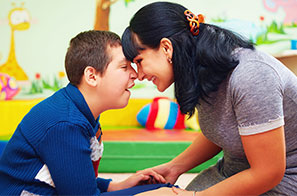Dementia
The word ‘dementia’ describes a set of symptoms that may include memory loss and difficulties with thinking, problem-solving or language. These changes are often small to start with, but for someone with dementia they have become severe enough to affect daily life. A person with dementia may also experience changes in their mood or behaviour.
Dementia is caused when the brain is damaged by diseases, such as Alzheimer’s disease or a series of strokes.
A person with dementia will have cognitive symptoms (to do with thinking or memory). They will often have problems with some of the following:
- day-to-day memory – for example, difficulty recalling events that happened recently
- Concentrating, planning or organising – for example, difficulties making decisions, solving problems or carrying out a sequence of tasks (such as cooking a meal)
- Language – for example, difficulties following a conversation or finding the right word for something
- Visuospatial skills – for example, problems judging distances (such as on stairs) and seeing objects in three dimensions
- Orientation – for example, losing track of the day or date, or becoming confused about where they are.
A person with dementia will also often have changes in their mood. For example, they may become frustrated or irritable, apathetic or withdrawn, anxious, easily upset or unusually sad. With some types of dementia, the person may see things that are not really there (visual hallucinations) or strongly believe things that are not true (delusions).
Our staff are trained to recognise the difficulties people with dementia are facing and to support them with a caring way.
If you are suffering dementia, our service will provide you a tailored service that will meet your individual need.







